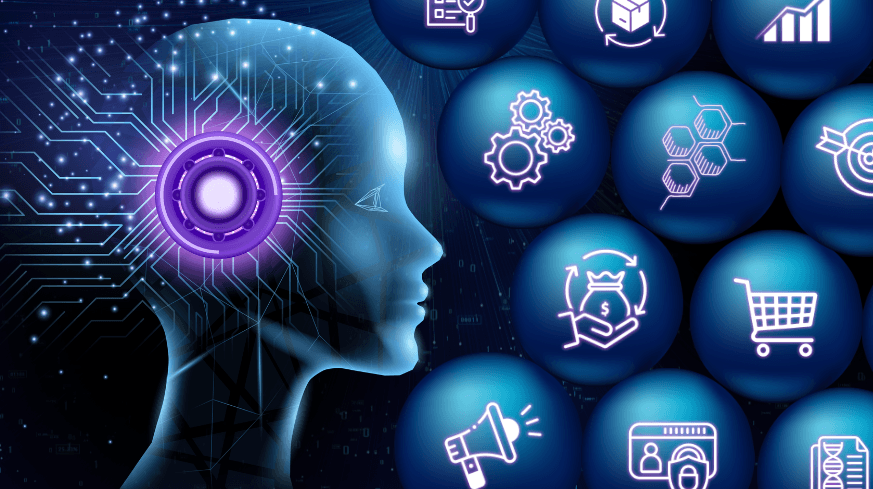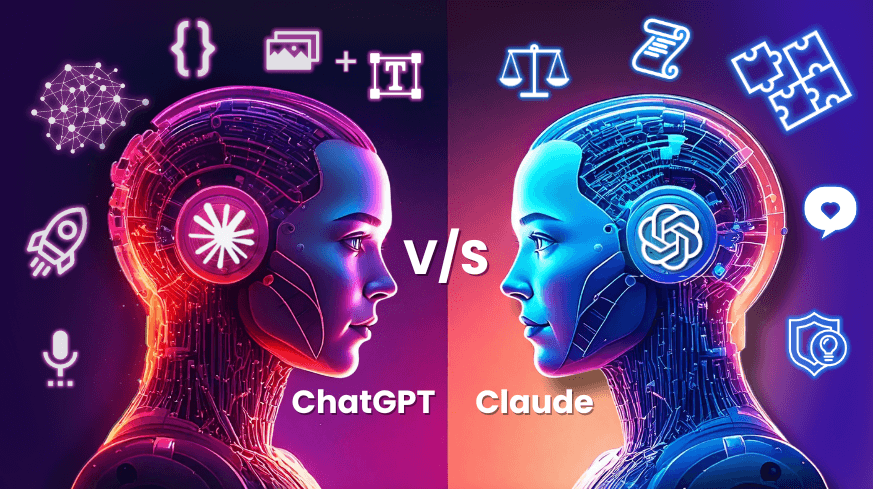Table of Contents
ToggleTechnology has changed the face of many sectors, especially that of entertainment. The most advanced development today is streaming services such as Netflix. With AI-integrated platforms in entertainment, personalization of content becomes very easy. It optimizes the user experience and redefines the entire media consumption activities by consumers. This article reveals how Netflix uses AI, the position of AI in streaming services, and technology trends in entertainment.
Tech in Entertainment: The Game Changer
The increasing role of tech in entertainment has also witnessed a game-changing tempo in the last decade. With advances in data science, AI applications have improved performance practically across entertainment platforms. Real-time recommendation, adaptable streaming, immersive content-creation – AI-driven changes or applications would be much like Netflix’s success in AI entertainment platforms.
How Netflix Uses AI
Netflix is the best representation of how the benefits of AI can be used to create truly personalized and frictionless consumer journeys. AI processes information on all features of Netflix’s operation-from recommendations to streaming-as follows:
1. Personalized Recommendations
Recommendations are one of the most distinctive features of Netflix. To turn the huge mass of the viewing history, search queries, and ratings which is revealed through user activity. An AI algorithm will analyze vast amounts of user data to predict what the users will enjoy. Machine learning algorithms also consider factors like genre, time of viewing, and actions like pausing or rewinding, to further customize the suggestion.
2. Dynamic Thumbnails
Artificial Intelligence helps in the choice of the most appropriate thumbnail for each single user on Netflix. Evaluating the single taste and conducting past search behaviors, Netflix presents the applicable thumbnails. It has a chance to draw much viewership and engagement. A rom-com user would see a romantic mood picture. On the other hand, an action movie fan would get to see an action shot of the same movie in his thumbnail.
3. Creation Content & Licensing
Even where content is not solely attended to, AI aids in creating and buying. After analyzing global trends of viewers and preferences, Netflix can predict hits before they start the production process. One such famous example that is all about data is House of Cards.
4. Streaming Quality Optimization
Netflix has perfected AI algorithms that automatically optimize video resolutions for varying network conditions. This is made possible through Dynamic Optimizer, optimized source video quality delivered during low connection speeds, thus enhancing customer experience.
5. Churn Prevention
AI-enabled analytics can also identify users in danger of churning- canceling subscriptions. Hence the supply of usage patterns or discontent triggers makes it possible for Netflix to have timely intervention by pushing personalized suggestions or offers.
AI in Streaming Services: A Broader Perspective
Netflix isn’t the only platform leveraging AI in streaming services. Also, other platforms like Amazon Prime Video, and Disney+, are competing and include AI. Here are some wider usages of AI in streaming services:
– Virtual Assistants with Voice Search: The integration of Netflix, for example, Alexa or Siri, with streaming platforms allows hands-free search for users.
– Content Categorization: AI automates the tagging and categorization of content, ensuring that what users want will be easy to search and find.
– Interactive Experiences: Examples of AI-driven storylines users can alter. It includes Netflix and YouTube, where these platforms experiment with new content ideas for user interaction.
Tech Trends in Entertainment
Several emerging tech in entertainment trends are changing the face of the entertainment industry itself. It is particularly driven by artificial intelligence and its allied technologies. Here are some major trends reshaping this space:
1. Immersive Experiences With AR and VR
AR and VR have opened up other channels for enjoying immersive experience entertainment. From VR concerts to AR-based interactive games these technologies enhance the involvement of the audience.
2. AI-Generated Content
Scripts, music, and even videos are now being made possible by AI tools. These instruments including Opens AI’s GPT and DALL-E are somewhat boosting opportunities for creative people. It brings down costs needed for production.
3. Blockchain in Entertainment
Revolutionizing distribution of content by royalty payment transparency and reducing piracy becomes even possible through blockchain. It also enables a direct creator-to-consumer model without middlemen.
4. Hyper-Personalization
Hyper-personalization is an emerging trend that has only become possible through advancements in algorithms in AI. What streaming services provide is not only the content but also the twinning of services to make it a unique experience for every user.
5: Green Innovation in Entertainment
Sustainability is the new catchword, and the entertainment house is not willing to be left out. They engage in various green technologies to cut down their greenhouse gas emissions. Again, AI has its hand in optimizing energy use in data centers and streaming operations.
The Role of AI in Film
Entertainment is not limited to directed streaming channels, AI is now redefining each aspect of film production and gaming:
• Movie production: AI tools for analyzing scripts and forecasting box-office success. Techniques such as virtual production, similar to that of “The Mandalorian,” use AI to render background scenes instantly.
• Gaming: AI enhances the gaming experience by creating dynamic and smart non-playable characters (NPC) along with procedurally generated environments.
• Music: Spotify is one such AI-based platform where machine learning allows discovery of new artists by curating playlists.
Challenges and Ethical Considerations
With all the advantages that AI brings, this also brings with it challenges in entertainment:
- Possible data privacy violations: With the collection of enormous amounts of user data across streaming platforms, concerns about privacy and security are rising.
- Algorithmic Bias: Algorithms based on AI can build in-built bias affecting with recommendations of content or representation in itself.
- Loss of Jobs: Content creation and distribution automation may limit jobs traditionally available.
- Overconsumption and Addiction: Hyper-personalization can lead to binging, thus negatively affecting mental health and productivity.
Conclusion
Tech is on a track to revolutionize AI-powered entertainment platforms such as Netflix really about transforming all comes into play. This is possible since by using AI, a streaming service can create personalized, efficient, and interesting user experiences. Personalized recommendations, dynamic thumbnails, or even content optimization integrated with AI are several applications by Netflix. It exhibits how useful AI could be to the entertainment industry.
Indeed, as these tech trends in entertainment keep changing, so also do the horizons stretch endlessly along the lines of innovations. It is vital to see solutions to data privacy and ethics. AI entertainment will be both a boon and a bane, to the producers and consumers alike. The future scape of AI in entertainment is a vibrant; personalized, integrated, and sustainable industry for every person.
Lorem Ipsum is simply dummy text of the printing and typesetting industry. Lorem Ipsum has been the industry’s standard dummy text ever since the 1500s, when an unknown printer took a galley of type and scrambled it to make a type specimen book. It has survived not only five centuries, but also the leap into electronic typesetting, remaining essentially unchanged. It was popularised in the 1960s with the release of Letraset sheets containing Lorem Ipsum passages, and more recently with desktop publishing software like Aldus PageMaker including versions of Lorem Ipsum.







